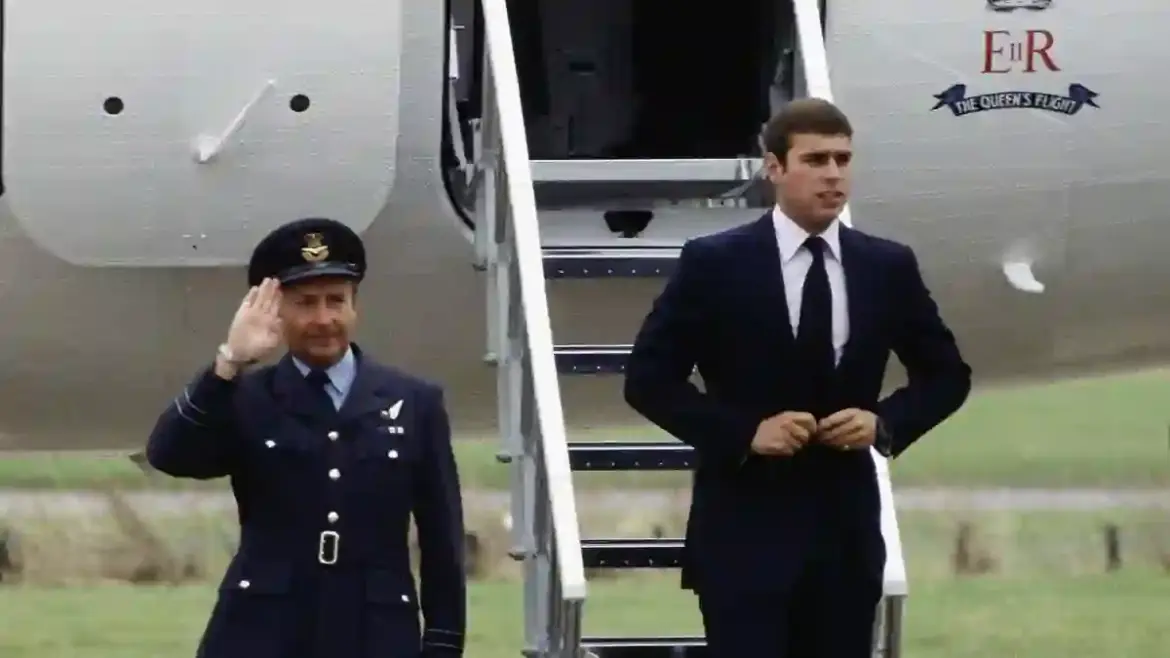The Duke of York’s name is back in the spotlight after historian Andrew Lownie released a no-holds-barred biography that digs deep into Prince Andrew’s past.
The book, Entitled: The Rise and Fall of the House of York, took four years to put together and paints a damning picture of the prince’s lifestyle, questionable spending habits, and controversial ties to Jeffrey Epstein.
Lavish Trips and China Controversy
One of the most striking accounts in the book focuses on Andrew’s 2004 trip to China.
While it was billed as a mission to strengthen trade ties, insiders recall it being more about luxury than diplomacy.
Lownie describes how Andrew insisted on staying in the Presidential Suite of a five-star hotel, surrounded by a large entourage.
Each morning he reportedly staged unnecessary planning breakfasts, though he showed little interest in the actual briefings or the country he was visiting.
Criticism From Journalists and Diplomats
Catherine Mayer, the only journalist accompanying him on that trip, is quoted as being less than impressed.
She accused Andrew of living on “Planet Windsor,” saying he lacked emotional intelligence and self-awareness.
Mayer also claimed he often resorted to childish behaviour, pulling practical jokes and boasting about quirky hobbies that left her unconvinced of his seriousness.
“Air Miles Andy” and Jet-Set Spending
The book dedicates an entire chapter to Andrew’s controversial use of private aircraft — a habit that earned him the nickname “Air Miles Andy.”
His jet-setting ways cost taxpayers eye-watering sums.
In 2005, the National Audit Office examined 41 of his trips in just one year and found they had racked up £325,000 in helicopter and plane bills.
Among the examples: £32,000 spent on golfing trips to St Andrews, and one journey where he shelled out £4,645 on an RAF jet instead of taking a £254 commercial flight, just so he could finish a round of golf.
His official duties? Not scheduled until four days later.
The Wider Criticism of Extravagance
Even though politicians like Tony Blair also faced criticism for abusing private travel, Andrew’s spending stood out because of the damage it was seen to cause to the monarchy’s reputation.
At the time, some commentators even warned he was “a small bomb threatening to detonate in the bosom of the Royal Family.”
When journalists tried to track his travel record through official channels, the process turned into a bureaucratic game of hot potato between government departments, Buckingham Palace, and the Cabinet Office.
In the end, only a fraction of his trips were publicly listed, raising more questions than answers.
The Shadow of Epstein
Adding even more pressure are the new claims linked to Jeffrey Epstein.
According to well-placed sources, US Congress is currently combing through hundreds of thousands of documents, some of which reportedly include emails between Prince Andrew and Epstein that could be highly incriminating.
David Boies, the lawyer who represented Andrew’s accuser Virginia Giuffre, has gone so far as to suggest there is enough material to justify a criminal investigation into the prince.
Andrew, however, has always vehemently denied Giuffre’s allegations that she was trafficked to him by Epstein.
A Reputation Under Siege
With damaging revelations about both his spending and his connections resurfacing, Andrew’s reputation faces yet another blow.
Lownie’s book doesn’t just reopen old wounds — it may push them even deeper, as the world waits to see whether more evidence emerges from those sealed congressional files.
